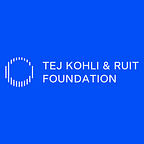21 Year Old Gets a Second Chance | #2030InSight
It was only a matter of time before 21 year old Prince risked becoming permanently blind. Thankfully, intervention arrived just on time.
The Tej Kohli & Ruit Foundation has been tirelessly providing crucial eye care services to neglected and underprivileged communities in Nepal and Bhutan. Recently, the foundation collaborated with HCP Cureblindness to expand its efforts to Ghana.
One patient they met along the way is 21-year-old Prince does not like mathematics and science at school. He prefers subjects such as history, social studies and English. When asked why, he says it is because of his visual impairment.
He said: “I cannot see the blackboard in my classroom clearly. Subjects like mathematics and science require me to see the board to understand what is being taught. Whereas when it comes to subjects such as history, social studies and English, I can simply listen to the teacher to understand the course material. I do not require any visual guidance.”
Prince has been living with cataracts since his birth. He has struggled his entire life due to blindness. If his cataracts aren’t treated soon — he could become permanently blind. Prince’s family live in abject poverty, and his mother, the breadwinner, leads a difficult life to sustain her family.
Prince’s mother grows bananas in the small plot of land they own. She also purchases bananas from other local farmers and heads to the big city of Accra to sell them. She leaves at dawn and returns way after nightfall. Despite doing this routine three times a week, she has no savings to rely on.
Meanwhile, Prince continues to struggle with blindness. He loves soccer, but is unable to play with his friends as he cannot judge the ball accurately. He likes to play video games but does that too with great difficulty. It is difficult for him to read his textbooks as well — causing him to lack behind his friends.
Prince and his family were completely unaware that if his cataracts were not treated soon, he would become permanently blind. Which could be an issue as he dreams of becoming a journalist in the future.
One day, a screening team arrived in his village in preparation for a scheduled outreach camp at the Eastern Regional Hospital. After all the necessary checks, he was invited for surgery the next week.
Once at Koforidua, Prince underwent preliminary tests along with hundreds of others who were found to be living with cataracts and were invited for their free surgeries at the camp.
The camp was organised in collaboration with HCP Cureblindness, the Eastern Regional Hospital, and the Tej Kohli & Ruit Foundation.
A team from the Tilganga Institute of Ophthalmology from Kathmandu, led by Dr Sanduk Ruit was working closely with local Ghanaian doctors to cure them of needless blindness.
Meanwhile, Prince, who is supposed to undergo surgeries in both eyes, became nervous at the last minute — he insisted he wanted surgery only on one eye.
According to him, he feared total darkness as both his eyes would be patched up after surgery — this however would be a reality if he did not, undergo surgery. Despite much persuasion and counselling, an adamant Prince allowed surgery only on one eye.
Prince’s surgery was performed by co-founder of the Tej Kohli & Ruit Foundation Dr Sanduk Ruit — a Nepalese eye surgeon who has been nicknamed the God of Sight for taking his work across the developing world to cure such communities of needless blindness.
The next day, Prince along with hundreds who had undergone surgery awaited their patches to be removed. Prince could not believe the result — his vision had improved tremendously, and he was cured of blindness.
Convinced about the effectiveness of the surgery, Prince was also willing to undergo surgery in his second eye as well.
Prince today lives a life free from needless blindness. Had the intervention not arrived on time, he could have become permanently blind. But this is not a singular story. For across the developing world, there are millions who continue to live a life of needless blindness because they cannot afford or access surgery.
The Tej Kohli & Ruit Foundation is driven by a mission to cure at least 500,000 of such needless blindness by 2030 — and is grateful to work with like-minded organisations such as HCP Cure Blindness, the Eastern Regional Hospital, and the Tilganga Institute of Ophthalmology in achieving this milestone.
The Tej Kohli & Ruit Foundation, founded in March 2021, is persistently providing essential eye care services in developing countries, with the aim of eradicating preventable blindness in impoverished communities to alleviate poverty. Needless blindness has well-documented socio-economic consequences, causing financial, psychological, and social distress to individuals and their families.
Supporting comprehensive sight restoration initiatives can promote community regeneration by enhancing job opportunities, and aid in achieving the United Nations’ fundamental Sustainable Development Goal of eradicating extreme poverty globally.
